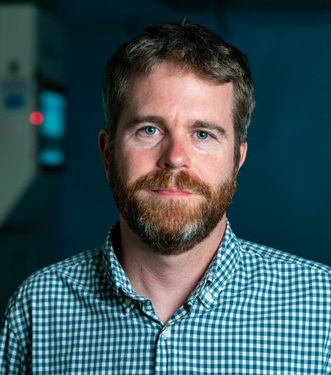About the department:
I’m in the Department of Civil and Environmental Engineering at MIT. This is an amazing, but unusual, department! Our faculty spans microbiology, hydrology, environmental chemistry, networks, materials, architecture, structural engineering, and now, plant evolution and physiology. I interact most closely with the environmental scientists and engineers, and I’ve been amazed at our common interests spanning traditional disciplinary boundaries.
About the research:
Our group is generally interested in how the physical environment impacts the evolution and ecology of natural plant populations. Plants integrate a spectacular amount of environmental data on time scales bridging minutes to seasons to decades. In the case of plant-environment interaction, we often lack an understanding of how genetic variants translate to physiological differences, and so much of our work addresses these functional linkages. Presently, we are asking how the topology and function of gene regulatory networks affect the evolution of environmental response, as well as how patterns of nutrient and biomass allocation evolve during life history transitions.
Being a new faculty member:
During my first few months at MIT I felt like a kid in a candy shop. First, there’s the excitement of filling a lab with equipment and imagining all of the discoveries that might emerge from our new toys. Second, MIT is a very collaborative, interdisciplinary, question-driven university filled with brilliant problem solvers. In my first three months I wrote grant proposals with faculty in five different departments; the opportunities for exploring living systems from unique perspectives feels boundless here. There were challenges, too. Recruiting and retaining productive lab members is hard, and of course we all want to be good mentors but at times I didn’t know how best to accomplish that.
On SSE membership:
I honestly can’t recall when I became an SSE member, sometime in graduate school I imagine, though I vividly remember my first Evolution Meeting, in Fort Collins, CO in 2004. At previous professional meetings I’d felt very intimidated and out of place. By contrast, Evolution felt like it was attended by 1000 friends and colleagues that I just hadn’t met yet! The talks were approachable yet thought-provoking, the topics seemed to cover everything I’d ever found interesting, the vibe was inviting to young scientists, and the senior faculty actually came to our posters and asked useful and challenging questions. I’ve been a regular attendee ever since!!
Are you involved in evolution outreach? Tell us about it.
For the past four years, I’ve been fortunate to have a great public platform through my affiliations with The Arnold Arboretum and Harvard’s Natural History Museums. Both the Arboretum and HMNH have established very successful public programs through which I’ve given workshops to local teachers, garden clubs, and members of the general public on plant evolution, diversity, physiology, and agriculture. I’m continually inspired by the interest and excitement from participants in these sessions, many of whom haven’t had any formal scientific education past high school. You’d be amazed what nuggets of botanical insights people gain over years of gardening! I’ve also found that distilling down complex topics like photosynthesis, selective sweeps, or local adaptation for a general audience is a really fun and interesting challenge.
Tips and Advice
My advice to aspiring scientists in any field is to find balance. Balance between doing science and being a family member, friend, and citizen. Balance between working on current projects and planning for the future. Balance between projects that are safe and likely to yield sound conclusions with those that are risky or technically challenging but could result in major advancements. Balance between time for myself and for my students and mentees. I think I’ve done a pretty good job finding balance, but it’s a continual struggle. I have to remind myself that everyone, from undergrads to National Academy members, face these same issues and we’re very fortunate as academic evolutionary biologists that we have a great community that can help us.
On life outside the lab:
I’m a father of two very energetic young children, and my wife is also a tenure-track professor. Being a parent is much harder but much more fun than I’d imagined. For the last few years my wife and I had to completely re-invent how we decompress from work. Honestly, some Mondays feel like a decompression from parenting! Before we had kids, we would go on long hikes and other ambitious outings, but now we just can’t do things that are so exciting. One thing I’ve tried to do is to see the world through our kids’ eyes, since even a short walk around a pond I’ve seen a hundred times is filled with new discoveries for a 2-year-old.
 David L. Des Marais
David L. Des Marais.jpeg)